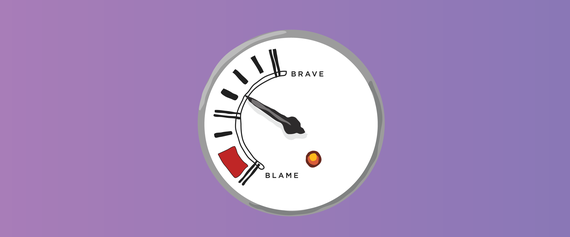Sometimes client work runs counter to your established company principles. After successfully working with a client for many months, one of my employees came to me seeking advice on how to handle a peculiar situation. Essentially, the client lead wanted us to conduct a user research project using the wrong strategy. We knew this strategy was wrong because they wanted us to test only what they felt would showcase the new design in the best light. We'd already reviewed the design and knew it had usability issues, so this test would falsely lead management to believe that the design was well-received by customers. The client lead had been asking for additional research and design resources from management without success; so to prove a point, the design would be pushed forward (and it would most likely fail in the long run) while everyone would still look good.
- Don't waste time
- Don't waste money
- Be brave, everyone
Our researcher recognized the situation for what it was -- someone who knew the best way to move forward, but was reluctant to be brave and champion the "right" way because keeping upper management's approval was the priority. It reminded my team and me that as companies are embracing words like innovation, disruption and creativity, their culture may be preventing these things from actually happening.
It's not the risk that [professionals] are adverse to, it's the blame. We've got to change the blame culture. (Carrie Bishop, Director of FutureGov)
A blame company culture chips away at employee morale, wastes precious resources and suppresses employees' innovative, proactive mindsets. Ideally, employees are hired for their prior success, ability to solve problems and help a company achieve its goals. If they're worried about the blame game, employees will not be free to think AND do their best work.
Shift from Blame to Brave
Here are three strategies to help inspire open dialogue and events that will promote a brave company culture.
- Make "being brave" a part of the process. In the diverge stage of client projects, we ask our team to come up with as many ideas as possible. The crazier, the better. Everyone is on a level playing field for offering ideas. It helps to sit at a round conference table, or even take the "diverge circle" to the floor. When being brave, asking people to offer their ideas no matter what, is so ingrained in what you do, people begin to feel more comfortable (and even enjoy) doing it. Talking-sticks or rules, which often minimize competition and curtail imagination, are not allowed. The possibility for endless possibilities builds competition into the process; and at the right time, it inspires bravery to keep your employees pushing forward with new ideas.
- Create a great team dynamic. When you love the people you work with, why would you ever treat them poorly? Or, even more bewildering, blame them for proposing an idea? The smaller agencies (like ours) have an advantage here, and we take advantage of our tight-knit, mentor-like co-worker relationships to help each other be brave. Notice, I didn't say fearless -- being brave, or courageous, means harnessing that fear to help propel you forward, to keep you trying new things. As the saying goes, "If you're not failing, then you're not trying."
- Create change from the top down. Blaming exists if it's accepted as a form of motivation by management. If employees are rewarded for blaming others (in reviews, promotions, more time with leadership, whatever), then they will do it under the guise of appearing to be helpful, honest or proactive. When blame is discouraged, then employees learn to avoid spending time on blaming and other destructive behaviors. Instead, they engage in constructive problem solving and collaboration, figuring out how to move forward without blaming and wasting resources.
No matter what your role is, I encourage you to explore how risk, blame, bravery and the desire for innovation influence the culture and work habits at your business. During our account kickoffs and project meetings, I've realized that the most important thing that we can do is inspire an impulse to be brave. Will you?
